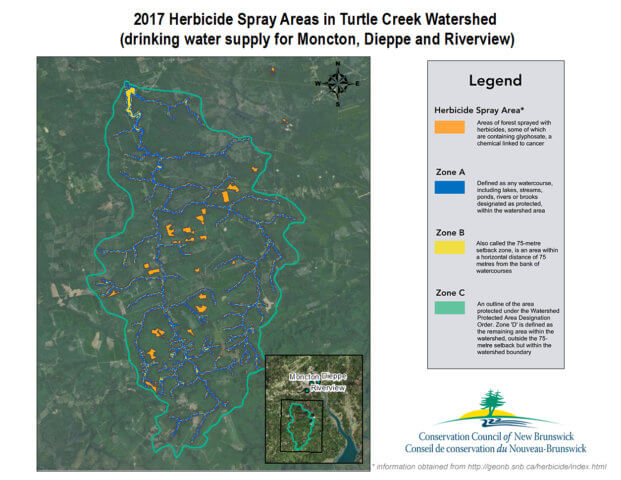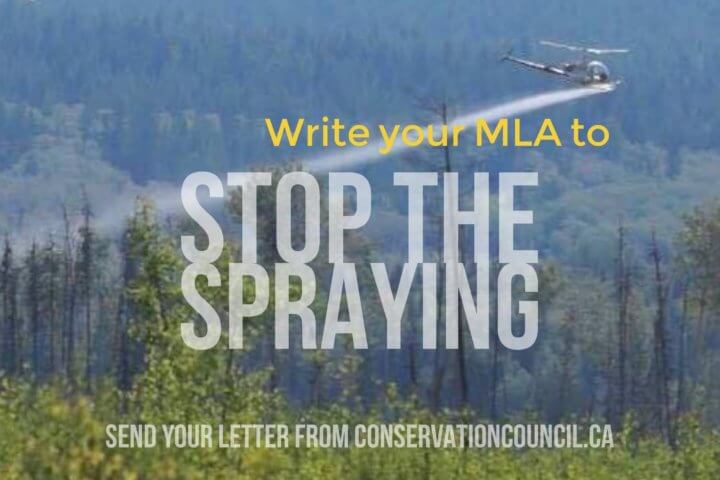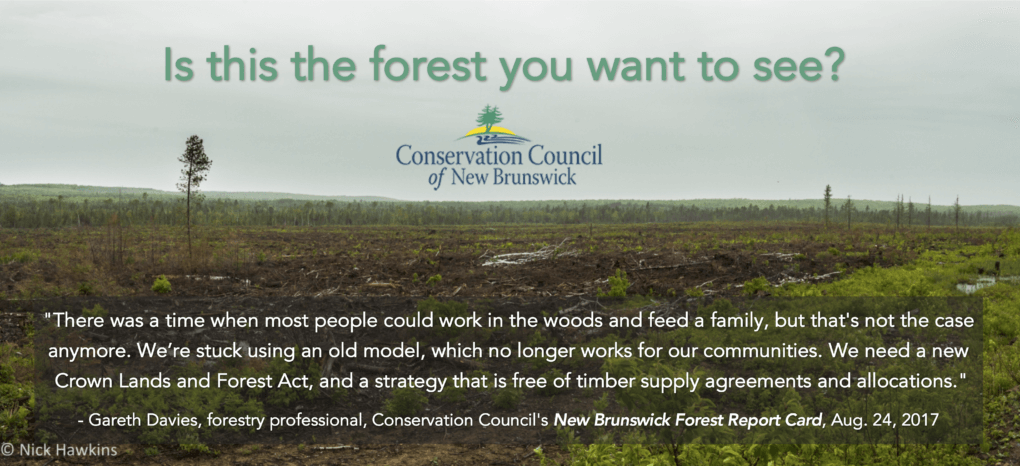The City of Moncton is calling on the province to stop spraying glyphosate-based herbicides near the Turtle Creek watershed, a natural reservoir supplying drinking water to more than 100,000 residents within Moncton, Dieppe and Riverview, the CBC reports.
“It is our opinion that aerial herbicide spraying should be considered a restricted activity under the Watershed Protected Area Designation and should, therefore, not be permitted,” wrote Moncton Mayor Dawn Arnold in a letter addressed to Minister of Environment and Local Government Serge Rouselle on Aug. 2, 2017.
As explained in the letter, which Arnold made public on her Facebook page, spraying is scheduled to happen just outside the required distance from the reservoirs and at several locations within the watershed itself.
“It is our opinion that Aerial Forest Herbicide Permits should not be granted for properties within the designated watershed boundary,” Arnold wrote. “We trust that you understand the importance of a safe and viable drinking water supply. Protecting the heath and safety of our community and environment is of the utmost importance to us.”
Following Arnold’s letter, Riverview Mayor Ann Seamans said in a statement that she supported the Moncton mayor’s request for spraying to stop within the watershed, adding she is likewise concerned about the potential risks it poses to the community’s drinking water supply.
According to a CBC article published on Aug. 25, Minister Rouselle responded to Mayor Arnold’s letter, but she said “he [the Minister] was very much embracing what the federal government had told him as far as the safety concerns for the glyphosate.”
What is Glyphosate? Glyphosate is the active ingredient in the herbicides Vision, Vision Max and Forza, among others, which are widely used by forestry companies on New Brunswick’s Crown forest each summer. The Conservation Council has long called for the phase-out of herbicides on N.B.’s Crown forest. Québec banned herbicide use in its forests in 2001 due to public concern over the human health impacts of spraying and replaced the practice with thinning crews.
Want to help? This summer, the Conservation Council released maps showing the spraying hotspots in the province and a forest report card that draws attention to the need for modern forestry laws in New Brunswick. We have also made it easy for you to write your member in the N.B. Legislature to voice your concerns with spraying. And, we created this survey for you to fill out to have your say on Crown forest management. Fill out the survey and you could win a gift basket of goods worth more than $100.
- Read the full CBC article: Moncton mayor wants glyphosate spraying stopped near Turtle Creek (Aug. 25)
- Read the full Global News article: Moncton mayor calls for halt to glyphosate spraying inside city’s watershed (Aug. 24)
Recommended links:
- The way we manage our forest is outdated: experts (August 24, 2017)
- Tracadie-Sheila looking at by-law to ban glyphosate (July 26, 2017)
- It’s time for 21st Century forestry practices in N.B.: Glynn. (June 29, 2017)
- N.B. and Maine announce new study on the effect of forestry management on deer population (Feb 8, 2017)
- N.B. uses more glyphosate in forestry than anywhere else in Canada (August 2, 2016)
- CCNB statement in response to report released by the Office of the Chief Medical Officer of Health on glyphosate (July 29, 2016)
- New Brunswick’s largest ever petition calls for ban of glyphosates in the forest (Dec 7, 2016)




